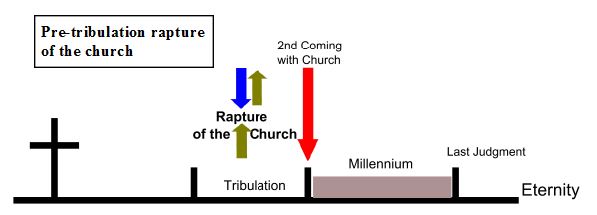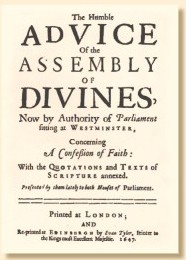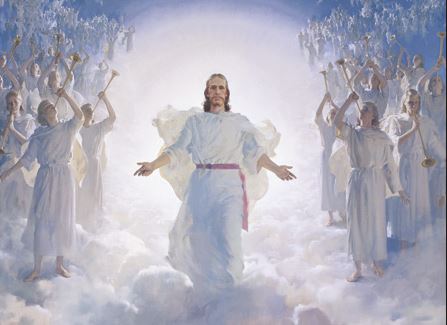 Related Articles
Related Articles
|
|
|
 Websites
Websites
|
|
|
|
|
Covenant Theology and Dispensationalism
Two contradictory and competing 'systematic theologies' have been, and remain very influential in shaping Christian belief and action.
 Note: The 'response' facility relating to this article is available to (logged on) site members only. Note: The 'response' facility relating to this article is available to (logged on) site members only.
Preface
The following article is a modified extract from an earlier article entitled 'A Covenant-keeping God'. The piece, which contains an overview of the major Biblical covenants, is itself part of a 'Drilling Down' series of articles (a 'work in progress').
-----------------------
Foreword:
Theological constructs;
frameworks of interpretation
(aka Systematic Theology)
REGARDING interpretational systems and frameworks or – to use the fancy term – hermeneutics, it is important to note the distinction between terms which are ‘theological’ and those which are ‘biblical’. Theological terms need to be treated with great caution.
Whilst these might be convenient in the discussion of key biblical themes and concepts (e.g. the term ‘Trinity’ as used in reference to the triune Godhead) these are essentially – in the grand sweep of history – neologisms.
They are essentially religious rather than biblical terms or, to use another word, ‘inventions’. They are often lacking clear definition and, across the Christian spectrum, experience differing levels of (dis)agreement and common understanding.
An example is the word ‘sacrament’. It is not found in the Bible and theologians have differed regarding the precise nature of a ‘sacrament’ and also what is (and isn’t ) covered by the term. (See New World Encyclopedia on the subject.) And the different opinions are not confined to the clichéd Roman Catholic/Protestant divisions. The Reformers Luther and Zwingli were famously in disagreement over Communion.
It is also important to differentiate between inductive learning and deductive reasoning. The former derives a view directly from (out of and formed by) the Bible text (exegesis): the latter is arrived at by a process of logic. For instance (and only for the sake of illustration) if it is held that God predestines some to salvation, then logic should dictate that God must, by extension, predestine some to a lost eternity. The use of logic can produce doctrines that are arrived at by eisegesis (reading into a Bible text from a particular and pre-suppositional theological framework).
Clever murder mysteries use 'deduction' to lead the reader or viewer on a false trail and to suspect the wrong person of the crime. (But of course Hercule Poirot's incisive and 'out-of-the-box' thinking shames the logic of we armchair sleuths every time.)
This is not to detract from the benefits of Systematic Theology which (in plainer language) is merely a themed approach to Bible study, but rather to highlight that theological suppositions should never be placed on a par with or, infinitely worse still, sit above the Word of God.
------------
Introduction
Two major theological systems -
(which contradict each other whilst also failing the Berean test: Acts 17:10-11).
 Caveat: Whilst focusing on particular interpretations, this is an 'equal opportunities' document in that it offers scope for a variety of opinions right across the theological spectrum. Caveat: Whilst focusing on particular interpretations, this is an 'equal opportunities' document in that it offers scope for a variety of opinions right across the theological spectrum.
In the Christian community across the world there are a variety of theological positions. However two of these have gained widespread support and – whilst disagreeing with one another – have both been highly influential in the formulation of belief. And it is important to stress again that these are theological constructs. The earliest of the two has been termed ‘Covenant Theology’ (mainly formulated and codified in the 17th century; see Footnote): the other being ‘Dispensationalism’ (with its origins in the 19th century).
The former is a central plank within Presbyterian churches around the world and across the (Presbyterian) denominational spectrum. The latter originated in the UK (pioneered by those within what became the Plymouth Brethren), but crossed the Atlantic to become hugely influential in the late 19th century. Dispensationalism informed the belief of the pentecostal churches at the start of the 20th century and has, since then, expanded both denominationally and geographically.
Covenant Theology

Covenant Theology (CT) developed two principal terms to describe its dual covenant interpretational framework viz. a Covenant of Works and a Covenant of Grace. (Some argue that there is only one covenant – the Covenant of Grace. Others include a Covenant of Redemption between the Father and the Son.) These theological terms have been employed to develop a whole range of doctrines and, because of the influence that they have had, we will (d.v.) come back to these later in more detail.
However, for the moment, and with reference to the most common 'dual-covenant' view – developed first by Dudley Fenner, an English Puritan, in 1585; and then Scottish theologian Robert Rollock (1555 - 1598) – it is sufficient to say that the (theological) Covenant of Works is used to denote the period prior to the Fall in the Garden of Eden. In simple terms the Covenant of Works would say: “If Adam and Eve had obeyed the instructions given to them then they would have been OK. “ However Adam and Eve didn’t, so God had to embark on Plan B – the Covenant of Grace.”
This term – again simply speaking, but remembering that it is a theological expression, not a biblical, one – covers the continuous period from the Fall until the final consummation and Kingdom come.
However this span of time is (it is argued) should be split into two ‘administrations’ (again a non-biblical term); basically delineated by the Old Testament (OT) and the New Testament (NT) periods. In these two ‘administrations’ (it is said) God applied the same principles but in two different situations and in two different ways to the one people of God. These were Israelites in the OT and believers (Gentile and Jewish) in NT times.
Whilst this is a convenient hermeneutic, it is not biblical. The nation of Israel was in effect a theocracy within which some were in communion with God (cf Heb. 11) while others very obviously, were not. In contrast the church (in the true sense of the bride of Christ) comprises solely of people in blood-bought communion with God.
So 'OT Israel = OT expression of church' is both overly-simplistic and grossly misleading . As a corollary, 'Church = Israel' is also untrue. (More on this below.) But as Covenant Theology has been widely accepted as ‘biblical’ it has led directly to (for instance) infant baptism. Accordingly paedobaptism is claimed to be the NT equivalent of circumcision – even though circumcision was never the symbol of salvation and union with God; and was only ever applied to males. [Again, more on this at later date (d.v.) when looking at 'Who are Abraham's seed?']
One of the other principal, and even more serious, mistakes deriving from Covenant Theology has led to what is commonly called ‘Replacement Theology’. This ‘theology’ – also termed Supercessionism – teaches that the Jews have now been ‘replaced’ by the mainly-Gentile church and (therefore, by deduction and logic) the promises to the Jews have now either all been fulfilled or spiritualised; or will find any contemporary or future fulfillment in the church. (So for instance many older Bibles have chapter headings for Isaiah 59 as “God’s curses on the Jews” and Isaiah 60 as “God’s blessings on the Church”.)
The ‘replacement’ view is most emphatically rejected by Paul in his letter to the (Jewish and Gentile) church at Rome. In fact this is his core message (Rom 11:1-2; 11-12) and the underlying reason for writing this – his longest – letter.
Dispensationalism

In contrast to Covenant Theology the other system of interpretation that has attracted widespread support is that of Dispensationalism.
There is a view that Dispensationalism (as distinct from, but embracing pre-millennialism) has its genesis in a Scottish believer (Margaret Macdonald; 1815-1840) and a Church of Scotland minister (Rev. Edward Irving; 1792-1834). What is undisputed is the fact the John Nelson Darby (founder of the Plymouth Brethren as a distinct grouping with its roots in the wider Brethren movement) is the latter-day father of this theological system. Darby took his pre-tribulation rapture teachings (the removal of believers from the earth prior to the return of Christ and before the ‘great tribulation’ of Matt. 24) to America where they were enthusiastically embraced by a lawyer called Cyrus I. Scofield (1843-1921).
Scofield in turn produced the Scofield Reference Bible (first published 1909) which is annotated throughout in support of Darby’s interpretations – especially with reference to eschatology, the end-time prophecies and events regarding Christ’s return. The Scofield Bible has been hugely influential right through to the present day – in America and right around the world. The teachings are now being propagated through the Moody Bible Institute in Chicago, Dallas Theological Seminary, and more than 200 other lesser-known Bible institutes..
Dispensationalism divides history into sections, covering the periods of Innocence, Conscience, Civil Government, the Patriarchs, the Law, Grace (the church age), the Millennium and the final consummation leading to the everlasting kingdom. However, and perhaps because this theological system lacks biblical warrant, there is a range of opinions (disagreement) on how many dispensations there are (varying from three to eight) and where, in history and in Scripture, the dividing lines lie.
But irrespective of the number of dispensations, the agreed assumption is that God has dealt differently with his world and its people in each of these different dispensations. Accordingly then, a different hermeneutic needs to be applied to the different portions of Scripture which cover these different periods of time.
What is also generally agreed is that the church age is a parenthesis – a defined interlude – in God’s overall plan of salvation i.e. in the OT God is dealing through the Jews while the NT is the time of the Gentile church until Jesus’s rapture of the saints (with a pre/post/mid-Tribulation rapture range of views) . This will usher in a further period of God again dealing with and through the Jews.
Dispensational teaching has been greatly popularised and adopted through hugely-influential and best-selling books like Hal Lindsey’s ‘The Late Great Planet Earth’ (1970) and the ‘Left Behind’ series of novels by Tim LaHaye. The Left Behind books – the first in the series appeared in 1995 – have sold over 50 million copies, and have been turned into a cinema production. The books are freely available from and often prominently displayed in Christian bookshops.
As stated earlier, the core element of these novels is the ‘pre-tribulation rapture’ which, as already stated, teaches that all Christians will be suddenly and without any warning removed from the earth prior to the return of Christ. (See Footnotes.) However, and apart from the wider Christian community, even within the Brethren camp there was disagreement. George Mueller (of Bristol Orphanage fame) broke with Darby over this issue. The great Baptist preacher C.H. Spurgeon also declared the teaching to be unscriptural. Nevertheless the doctrine has persisted.
In summation...
Both Covenant Theology and Dispensationalism have been and continue to be highly influential in formulating Christian belief, but both are disputed.
Covenant Theology dismisses swathes of end-time prophecy as irrelevant or allegorical, and sees no place in God’s final purposes for the Jews other than (perhaps) a final ingathering as outlined in Romans. In terms of latter-day expectations prior to the return of Jesus, the former implicitly teaches a universally positive response to the Gospel (reading more into Matt. 24:14 than the verse allows; cf Matt 7:14).
Meanwhile, though recognising the prophesied 'time of great trouble' (Dan 12:1; Matt 24; 2 Tim. 3:1-12), Dispensationalism (in pre-tribulation rapture form), teaches that believers will be spirited away, leaving the Jews to face the music of Satan’s final onslaught. (See Footnotes.)
So while the Gentile believers look down from a safe vantage point in heaven (as God's 'heavenly people'), the Jews will be God's latter-day 'earthly people' who will suffer greatly but endure through the Great Tribulation. Within the Dispensationalist view, Matthew 24 (et al) and, for some, Revelation chapters 4 - 19 are seen as only of academic interest – given the belief that the Gentile saints will be in heaven during that period.
Regarding God’s end-time purposes for the Jews, Dispensational Theology cannot get the church and Israel together, whereas Covenant Theology cannot get the church and Israel apart. The former sees the Jews and the church as totally different entities separated by ethnicity and end-time progression, whereas the latter see Israel and the Jews as essentially an earlier expression of the church, differentiated only by two separate and distinct ‘administrations’ of time (OT/NT) in God’s grace. In fact Israel was/is a physical nation comprising the saved and the lost (Rom 9:7), whereas followers of Christ are a spiritual nation made up exclusively of the redeemed (Gal 3:7,8; 1 Pet 2:9).
At the very least it can be confidently stated that because these two systems disagree markedly with one another, they cannot both be completely right. (And it could be argued that in critical issues they are both wrong.) Yet both of these systems have created expectations and assumptions which could leave believers scripturally askew; vulnerable through false hopes; and ill-prepared to understand the times and the purposes of God in our day as the cosmic upheavals preceding Kingdom Come drawn ever nearer.
At the risk of vain repetition, the theological systems of Covenant Theology and Dispensationalism lack Biblical support in major areas of doctrine, theology and eschatology. Moreover they profoundly disagree with each other on very significant points – especially concerning the times preceding the coming again of Christ; the place of, and God’s purposes for the Jewish people; and the establishment of His everlasting kingdom.
Footnotes:
1. Pre-Tribulation Rapture of the church as taught by most Dispensationalists. The view held is that Christ will have two comings: the first will be invisible 'for the saints' and the second 'with the saints'.

-------------------
 2. The Westminister Confession of Faith (1644) codifies much of what is described as 'Calvinism' and is subscribed to as a 'Subordinate Standard' by Presbyterian denominations worldwide. 2. The Westminister Confession of Faith (1644) codifies much of what is described as 'Calvinism' and is subscribed to as a 'Subordinate Standard' by Presbyterian denominations worldwide.
The document is predicated on so-called 'Covenant Theology' and contains material which is, in the broad sweep of the formulation Biblical, extra-biblical, and unbiblical representing Truth mixed with error.
It is also deficient in failing to cover some some major biblical themes: making bare mention of the person and role of the Holy Spirit, and with no mention of the Great Commission.
3. The Millennium
 Broadly speaking Reformed (Covenant) theology teaches the Millennium as being a definite period prior to the coming again of Christ at the end of the age. However, the early church believed in a literal Millennial reign of Christ on earth. Broadly speaking Reformed (Covenant) theology teaches the Millennium as being a definite period prior to the coming again of Christ at the end of the age. However, the early church believed in a literal Millennial reign of Christ on earth.
While many today share this latter view, not all who do are Dispensationlists (i.e. all Dispensationlists are pre-millennial but not all Pre-Millennialists adhere to Dispensationalism). See article The (Coming) Millennium by a Scottish lay preacher and city mission superintendent. |
The Editor, 30/07/2013
|
(page
1
2
3
4
5
6
7
8
9
10
11
12
13)
| |
|
Colin Ford (Guest) |
20/08/2013 21:44 |
Editor,
Please excuse my lack of understanding (ignorance). But could you please elucidate upon your statements 1)"Allowing an assumed two covenant hermeneutic of works and grace" 2) Creating extra Biblical distinctions between OT laws..." and 3) "Selectively forcing laws upon Christian believers..."
Now I freely confess that I have never read the WCF in it's entirety, but what I have learnt from it thus far, I see nothing that is in opposition to what is clearly taught in the Scriptures. Of course the WCF is a man made document, of that there is no doubt. But please remember the "C" in between the "W" and the "F" stands for "confession" not commandment?
I understand that you have much respect for the teachings of J.C.Ryle an ex Church of England Bishop of Liverpool (a low churchman in a High Church!). I believe that he stated words to this effect; "If the C of E departs from the WCF, then I shall depart from the church". Now it is my sincere belief that the C of E has now abandoned the WCF? Is it in a better shape today for this?
I think ALL true Christians should have a high view of God's laws? The errant Pentecostal Mantra "We are not under law! No we are now under grace", has NO Biblical foundation whatsoever.
Men and women in the OT dispensation were ever saved by grace through the blood of Christ as the believers are in the NT dispensation today. The Saviour IS the "Lamb slain from the foundation of the world" Revelation 13.8 KJV. OT saints looked forward to Messiah, NT believers look back to the cross?: 1 Peter 1.9-12 KJV. Many Dispensational theologians, so-called, even if they don't openly teach that men and women of OT times were saved by the blood of lambs and goats", have been infected by such doctrine, they are very confused to the uttermost.
No one was ever saved by keeping the law, only by the grace of God? No man alive can keep the OT Law and it's 613 Commandments? If he could he would never, ever die? He would be another Christ! Let us really take a powerful hold of this veritable truth.
The Ten Commandments ARE the way of life for the NT believer? The way to life is through the cross of Christ?
It was ONLY the ceremonial law that was nullified, when the veil of the temple was rent in two; Ephesians 2.15 KJV, Colossians 2.14 KJV, Romans 7.4 KJV etc. But sadly, there is a large body of "Christians" who genuinely, and erroneously believe that the "law is done away with". The Law can never be separated from grace, you cannot have one without the other as clearly evidenced in paradise? Indeed false Dispensational teaching has wreaked havoc in this very area. What are the Saviour's very Words in this regard?: Matthew 22.37-40 KJV, c/f Deuteronomy 6.5 KJV, Leviticus 19.18 KJV: The Lord Jesus Christ paraphrased the Ten Commandments into TWO great commandments, Matthew 22.40 KJV: The first four commandments of the Decalogue are between God and man, the second six are between man and his fellow man (neighbour).
The law (the Ten Commandments (moral law) are eternal (including the Sabbath), these laws are no less binding on New Testament believers today, than they were on Old Testament saints. We must not forget that in the OT dispensation, the law was given to the NATION of Israel. Israel was/is God's peculiar people and land? This IS exactly the SAME eternal and unchanging law that will "go forth from Zion" in the coming millennial reign according to Isaiah 2.3 KJV and Micah 4.2 KJV.
Sadly, in my understanding at least, ignorance prevails; people make light of God's eternal decrees? There are many (mostly atheists) that poke fun and mock God's Word by ridiculing such Scriptures as Numbers 15.32-36 KJV, we see that a man was stoned for picking a few sticks up on the Sabbath. Sounds hard? But we must NOT forget that God had just recently descended upon Sinai, if the Israelites saw that this rebellion went unpunished, then I suppose they would have made light of all the other Commandments?
I think Matthew 7.14 KJV, and Matthew 7.21-23 KJV are among the most sombre of warnings in the Bible, how we should meditate on such Scripture? But of course, lamentably, Dispensational theologians teach much heresy that the warnings in Matthew 24 and other places in the gospels are NOT for Christians!
|
| |
|
Editor |
20/08/2013 22:07 |
Colin, many apologies I just don't have the time at present to go into all of this, but if you could show me where Scripture creates a three-fold category (moral, civil and ceremonial) of the 613 Levitical laws then I would be interested.
As I mentioned earlier I currently engaged on the next (3rd) part of the 'Drilling Down' series which will be on Theonomy which leads into all of this.
But regarding the 10 'Commandments' we need to get into the original Greek words and also the Hebrew. But essentially believers are led by conscience to adhere to the pattern set for us by Christ and the NT Scriptures. Jesus affirmed 7 of the Mosaic 'commandments'; he made two even more stringent; he cut some slack on one; and he introduced a new one.
The common charge against those who say we are not under the OT law is that they are antinomian. But that is not the case.
Incidentally 'Sabbath observance' is not part of the 'moral law' it is a civil law, but that is conveniently ignored in order to fit the schema I mentioned earlier.
And to say again there is only ONE NATION ON EARTH that God applied the Mosaic and Levitical laws to - and that is the nation of Israel (which was not the OT church as Covenant Theology would have it). And anyway even for Jews (in Christ) there is a NEW covenant which replaces the Mosaic Covenant (Jer 31:31). It is only NEW to the people to whom the OLD applied - the Jews. Gentiles are 'grafted into' this new covenant through Jesus Christ (and Jews enter the same way).
It is worth taking a look at the New Covenant Theology which Jack mentioned but that is not the whole story.
Could I suggest that you study the WCF along with the 'Scripture proofs' (which were added retrospectively i.e. the document was compiled and then the 'proofs' were derived to support the WCF statements).
But just to say again, I'm sorry I just don't have the time to get into this in more detail at the moment.
|
| |
|
Editor |
21/08/2013 09:44 |
A further posting about 'the Law' has been deleted in order to keep this discussion on the subject of 'Covenant Theology'.
|
| |
|
Colin Ford (Guest) |
21/08/2013 14:36 |
Editor,
I have heard that strange teaching before that you mention above;"He made two even more stringent; He cut some slack on one; and introduced a new one". I believe this is not Biblical. I have heard it said that "Jesus raised the bar", as it were; nobody could keep the law so He made it even more difficult! How does that reconcile with Matthew 11.30 KJV ?
God always required the standard that the Saviour expounds in Matthew 5.27-28 KJV; read Psalm 119.37 KJV and Numbers 15.39 KJV ?
Read Job 31.1 KJV. John Gill's comment on this particular verse:
Not to look upon a woman, and wantonly gaze at her beauty, lest his heart be drawn thereby to lust after her; for the eyes are inlets to many sins, and particularly to uncleanness, of which there have been instances, both in bad men and good men, Genesis 34.2 KJV , 2 Samuel 11.2 KJV, so the poet represents the eye as as the way through which the beauty of a woman passes swifter than an arrow into the hearts of men, and makes impressions there ; see 2 Peter 2.14 KJV; hence Zaleucus ordered adulterers to be punished by plucking out the eyes of the adulterer; wherefore Job, to prevent this, entered into a solemn engagement with himself, laid himself under a strong obligation, as if he had bound himself by a covenant, made a resolution in the strength of divine grace, not to employ his eyes in looking on objects that might ensnare his heart, and lead him to the commission of sin; he made use of all ways and means, and took every precaution to guard against it; and particularly this, to shut or turn his eyes from beholding what might be enticing and alluring to him.
Job lived in days before the giving of the Law on Sinai, yet he understood the meaning that the Saviour gives in Matthew 5.28 KJV.
No man can keep the Law unto salvation. The Saviour in Matthew 5.27-28 KJV was combatting man's inclination to mollify and water down the standards of God's holiness by showing just what the Law required. He thus drove the lesson home that man cannot be justified by the works of the law.
Believers are under grace not the Law because they have fled to Christ, forsook all hope in self, and trusted instead in His sacrifice to satisfy the Law and pay its penalty.
As regards the "threefold category" of the Law, certainly the animal sacrifices and associated civil ceremonies etc have been abolished as there is now no temple standing, and of course the Nation of Israel has only been re-established in 1948. The Saviour clearly (at least to me!) taught that the Ten Commandments are eternal???
We could have a similar discussion about the Trinity, that causes problems for some?
I realise that there ARE replacement theologians under the wings of what is known as Covenant Theology, I have never denied that, they ARE in error.
Certainly the WCF is extra Biblical, but then have you noticed how every other church in this present day manufacture their own statements of faith?
|
| |
|
Colin Ford (Guest) |
21/08/2013 19:59 |
As I was considering these matters; is it any wonder that, in light of some of the things said above, that unbelieving Jews reject the Saviour? To them the Pentateuch is sacrosanct? Did not some 3 million Jews hear God's voice thunder from Sinai? How could they believe Deuteronomy 18.15 KJV, if we teach that He "changed, or upgraded the Law"?
So as Christians we should teach that God's Laws were ALWAYS perfect, that Jesus Christ was "before Abraham was"; John 8.58 KJV, is He not as Hebrews 13.8 KJV depicts? Did not the Lord Jesus Christ lead the Israelites across the Red Sea? Whose voice was heard in the garden? The Law didn't need to be tweaked! It was well said by an old divine: "if you can't see Jesus Christ on EVERY page in the Bible, you won't see Him on one page".
|
| |
|
Editor |
21/08/2013 20:33 |
As I said before Colin I don't have the time to discuss the law with you at this time. If you wish to discuss the WCF please post on that article. Thank you.
|
| |
|
Colin Ford (Guest) |
21/08/2013 20:50 |
Sorry Ed!
Though I do fail to see how these matters are a separate issue? They are inextricably linked, they cannot be separated. I just happen to have a very high view of God's Law, in common with Covenant Theologians, irrespective whether they are pre millennial or not?
|
| |
|
Editor |
22/08/2013 11:31 |
A Note to all interested parties:
I had hoped that this article would have prompted a constructive critique of BOTH Dispensationalism AND Covenent Theology.
As the message history illustrates the discussion very quickly focussed down on the doctrine of the (so-called) 'Rapture' (as meaning the invisible catching-up of believers and their removal from the earth).
Next-to-nothing has been contributed towards a critique of Covenant Theology.
There has also been a tendency to divert into the subject of 'The Law': an important issue, but one which -
(a) is a sub-set of the Dispensationalist/Covenant Theology debate and
(b) is a (yet-unpublished) part of the 'Drilling Down' series of articles
In the light of all of that, I am in the process of publishing a recently-written article by a 'retired' Anglican clergyman Rev. Tony Higton (whom I met once away back in the mid 80s I think it was).
Tony is now publishing - as a 'work-in-progress and in 'on-line' fashion - much teaching material; substantially including the subject of Eschatology.
I spoke to Tony this morning and he is happy to respond (on-line) to any questions/comments/rebuttals which site members might wish to post.
The article should appear by tomorrow (Friday) evening at the latest.
Meanwhile I suggest that further discussion on this thread should only related to the Dispensational/Covenant Theology subject (and avoid the matters of 'The Rapture' and 'The Law').
Thanks.
|
| |
|
John Ferguson (Guest) |
22/08/2013 13:19 |
I would like to know if those who interpret the scriptures by covenant theology subscribe to the teaching of replacement theology?
|
| |
|
Editor |
22/08/2013 20:40 |
John, in answer to your question. Many - indeed I would think most - do not even think much about what the Word of God says about Israel. (But very sadly take their 'theology' on the subject from the secular (mainly hostile) media.)
However if most (there are notable exceptions) within the CT camp were to be asked if the Church is now 'Israel' I would think that they would answer in the affirmative.
In fact anyone who subscribes to infant 'baptism' would be obliged to adopt that position on the basis of assuming (wrongly) that the promise to Abraham regarding his offspring now apply to Christian parents who sprinkle water on the heads of infants believing that the action is the NT equivalent of circumcision.
|
(page
1
2
3
4
5
6
7
8
9
10
11
12
13)
|
|
|